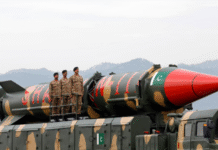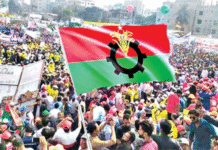The World Bank has signed a $15 million grant agreement with Bangladesh to increase access to clean energy for targeted rural areas through output-based aid (OBA) subsidies.
The grant is expected to benefit 1.1 million people living in poor, remote areas of Bangladesh currently lacking electricity from the power grid, a statement from the bank said on Saturday.
The project will make clean energy affordable to low-income households without using the grid by bringing down the cost of 225,000 solar home systems and 2,500 mini-grid connections.
The grant will facilitate investments in solar-powered irrigation to 6,600 farmers, reducing the financial and environmental impact of diesel pumps. It will also provide clean cooking solutions for over 9,850 households through biogas plants.
The state-owned infrastructure finance company of Bangladesh will implement the project in partnership with micro-finance institutions, non-governmental organizations and private sponsors.
“Bangladesh has set a global standard in establishing a successful OBA facility for renewable energy development,” said Catherine Commander O’Farrell, newly appointed head of a global partnership program run by the World Bank.
The grant will contribute to continued job creation in green technology, support for Bangladesh’s strategy of providing universal access to electricity by 2021 through off-grid solutions, and the goal of helping Bangladesh become a middle-income country.
“Bangladesh has the fastest-growing solar home system programme in the world, bringing electricity to remote households that are off the grid. The program has helped millions of men and women in rural areas to realize increased income and growth opportunities, and it has also helped millions of school children to keep up with their school work,” said Johannes Zutt, World Bank Country Director for Bangladesh, Nepal and Bhutan. (Reporting By Serajul Quadir; Editing by Hugh Lawson)
Source: Reuters









